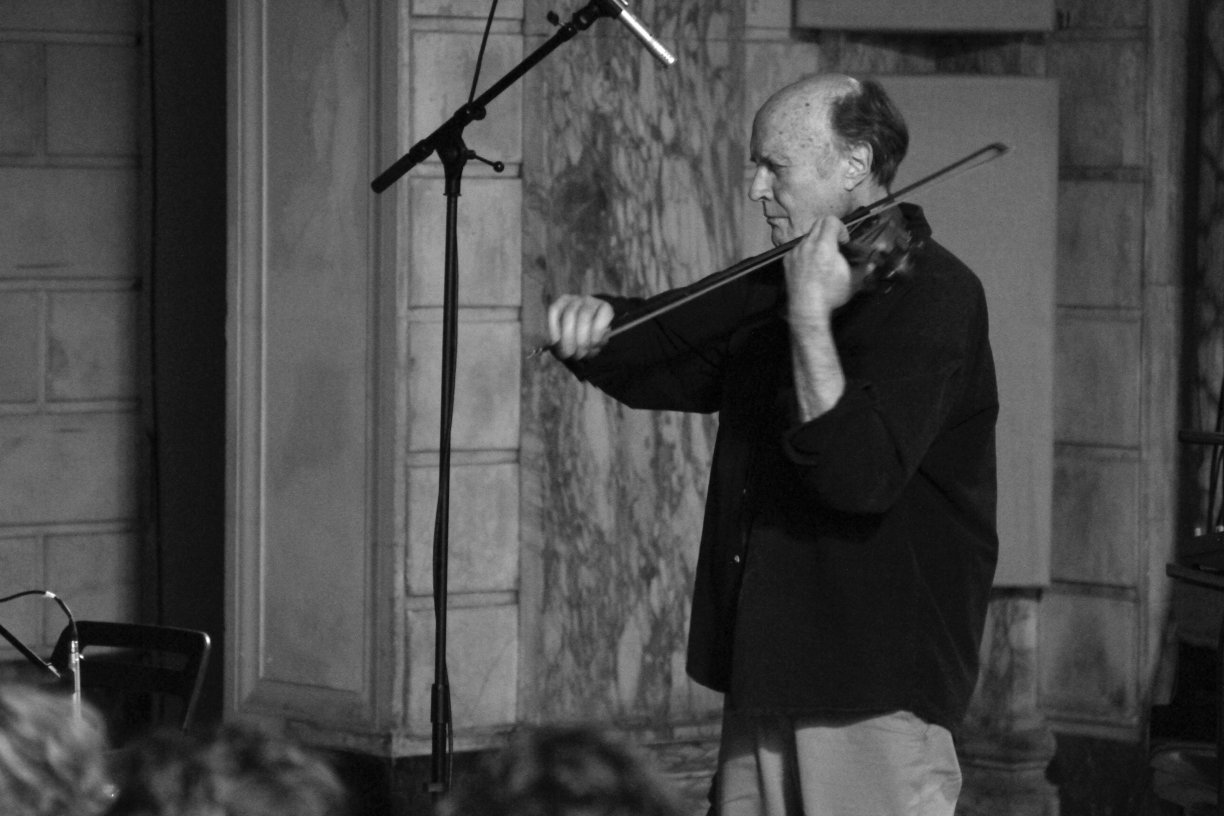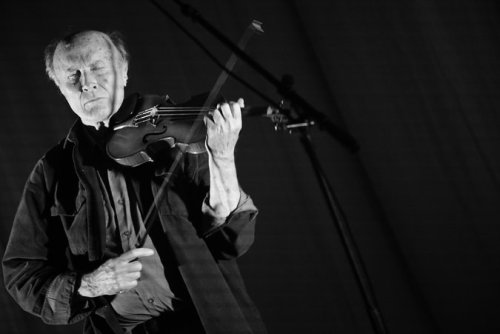Composer and performer Malcolm Goldstein has extended the sonic boundaries of improvisatory practice and the violin since the early 1960s. Tonight, Goldstein presents a four-part solo program dedicated to the late Ornette Coleman. The pair first crossed paths at a festival in Hartford during the early 80s, later engaging in discussions of Coleman's "harmolodic" theories at his Soho home. In 1986 Coleman composed a modular suite of solo pieces for the performer, Trinity, crossing traditionally notated melodies with passages of improvisation and extended technique. Response Extension Improvisation follows, a fully improvised set inspired by and in dialogue with Coleman. Goldstein's composition My feet is tired, but my soul is rested (1985), named from a quotation by Rosa Parks, shows Goldstein in a rare embrace of powerful melody, influenced by American blues. The program closes with one of the composer's signature Soundings, a name he has applied to his extended improvisations since the 1960s.
Program:
Ornette Coleman:
Trinity (1986)
Malcolm Goldstein:
Response Extension Improvisation
My feet is tired, but my soul is rested (1985)
Soundings
"The Trinity is a river that flows through the town I was born in; then only through the poor section of town, now redirected to flow through all parts of town."
— Ornette Coleman
"Trinity is a suite of many pieces, of which six are presented here. The number and sequence are left to the discretion of the performer. Each piece unfolds with endless, shifting focusses; fragments of melodies are collaged together to reveal new relationships and nuances of musical though. Everything is notated traditionally and then embellished with harmolodic inferences, "bending" of pitches, extended bowing techniques and improvisatory flights. "Yeah", he said, "let it open up more and more."
— Malcolm Goldstein
Malcolm Goldstein (b. 1936, Brooklyn, NY) is American composer residing in Canada and the USA, known for chamber and electroacoustic works that have been performed throughout the world; he is also active as an improviser and violinist. Mr. Goldstein attended Columbia University from 1952-59, where he studied composition with Otto Luening for one year and where he earned his BA and MA. He later studied violin privately with Antonio Miranda in New York City from the mid- to late 1960s. As a performer of new music, he has been active as an improviser, violinist and vocalist and has also played various found and natural objects, as well as other instruments. As a violinist, he performed with the Judson Dance Theatre in New York from 1962-64, the New York Festival of the Avant Garde in the 1960s and the Experimental Intermedia Foundation in New York in the 1960s. Since then, he has performed primarily as a soloist, both in improvised and notated music. With Philip Corner and James Tenney he co-founded the Tone Roads Chamber Ensemble in 1963, a new music group that performed until 1970. He later served as director of the New Music Ensemble of Dartmouth College in the 1970s and of the Hessischer Rundfunk Ensemble für Neue Musik in Frankfurt/Main in the 1990s. As a writer, he has contributed articles about improvisation to various journals, notably Perspectives of New Music, many of which appear in From Wheelock Mountain: Music and Writings by Malcolm Goldstein (1977, in Pieces: A Profile, edited by Michael Byron). In addition, he wrote the book Sounding the Full Circle: Concerning Music Improvisation and Other Related Matters (1988, self-published, now available through the McGill University Project On Improvisation). Mr. Goldstein was commissioned by the Charles Ives Society to prepare critical editions of Symphony No. 2 in 1976 and String Quartet No. 2 in 2002, both by Charles Ives. Frog Peak publishes some of his music.
The full recording of Malcolm Goldstein’s most recent solo performance at ISSUE Project Room is released as the LP "Full Circle Sounding" (KYE #34, 2015).


